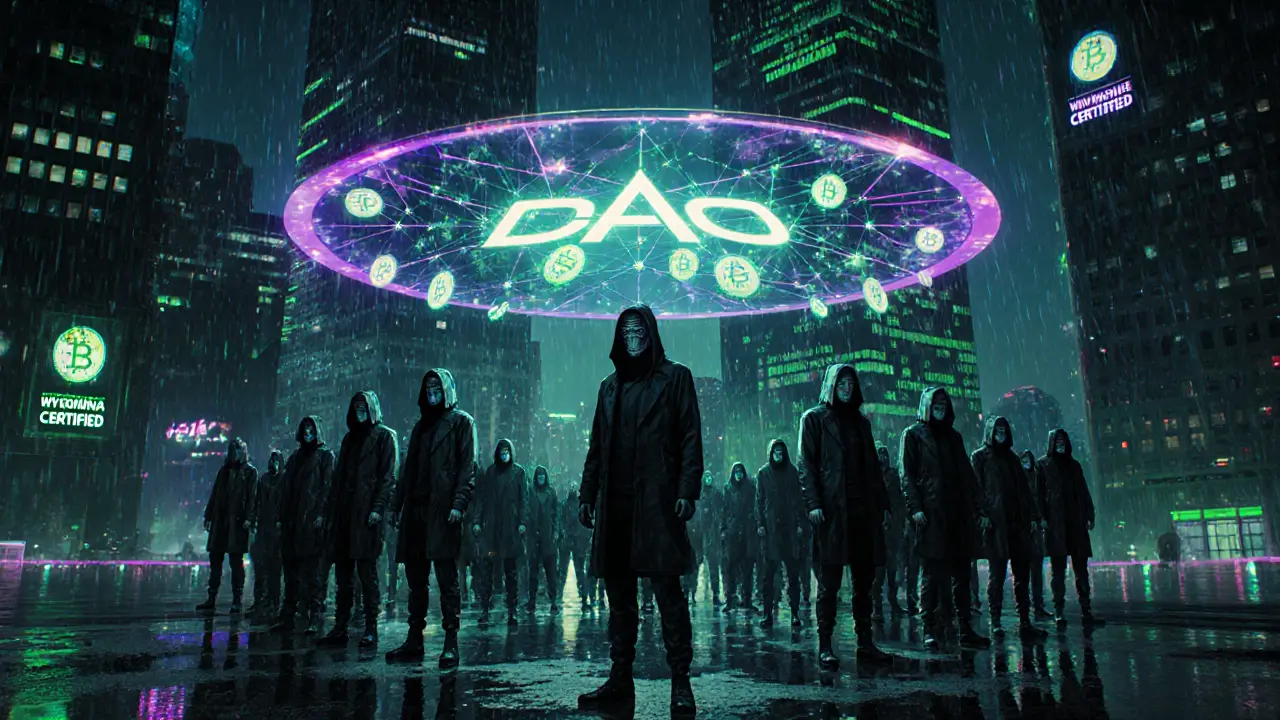In 2025, DAOs are legally recognized in a handful of U.S. states and Malta. Learn how Wyoming, New Hampshire, and others are shaping the future of decentralized organizations - and what it means for your tokens, liability, and business.
DAO Laws 2025: What’s Changing and How It Affects Crypto Governance
When you join a decentralized autonomous organization, a community-run digital entity that operates without traditional leadership, governed by smart contracts and token-based voting. Also known as DAO, it lets people collectively fund, build, and decide on projects — but only if the law lets them. In 2025, that’s no longer just a technical question. It’s a legal one.
DAOs used to live in a gray zone. Now, states like Wyoming and Tennessee have passed laws recognizing DAOs as legal entities, giving them the right to own property, sign contracts, and sue or be sued. But that’s not the whole story. The SEC, the U.S. Securities and Exchange Commission, which regulates financial markets and enforces securities laws is cracking down. If a DAO’s tokens are sold like investments — even if the team says they’re not — the SEC treats them as unregistered securities. That means fines, lawsuits, and forced shutdowns. Projects like SushiSwap and DexKit aren’t just competing for users anymore. They’re fighting for legal survival.
Outside the U.S., the picture is just as messy. Malta’s MFSA, the Malta Financial Services Authority, which sets strict licensing rules for crypto asset service providers under MiCA regulations requires DAOs to register, appoint local representatives, and submit detailed whitepapers. Meanwhile, Algeria and China have outright banned crypto activity — no exceptions. Even if your DAO is built on blockchain and runs on code, if it touches users in those countries, you’re breaking the law.
And it’s not just about money. The blockchain governance, the system of rules and processes that determine how changes are made to a decentralized network, including voting, proposal submission, and protocol upgrades behind a DAO matters more than ever. If your token holders can’t vote in a way that’s legally recognized, your decisions could be overturned in court. Some DAOs now hire lawyers to draft on-chain voting rules that match real-world legal frameworks. Others are abandoning governance entirely — switching to centralized foundations to avoid risk.
What you’ll find here isn’t theory. These aren’t hypotheticals. Every post below is based on real cases: the DAO that got sued, the token that was classified as a security, the country that banned mining but let DAOs operate under strict conditions. You’ll see how Kosovo’s energy laws changed how crypto projects are structured. How China’s e-CNY push forced DAOs to rethink global access. How scams like MoonDex and Concern Poverty Chain used fake governance to steal funds. This isn’t about speculation. It’s about survival.

